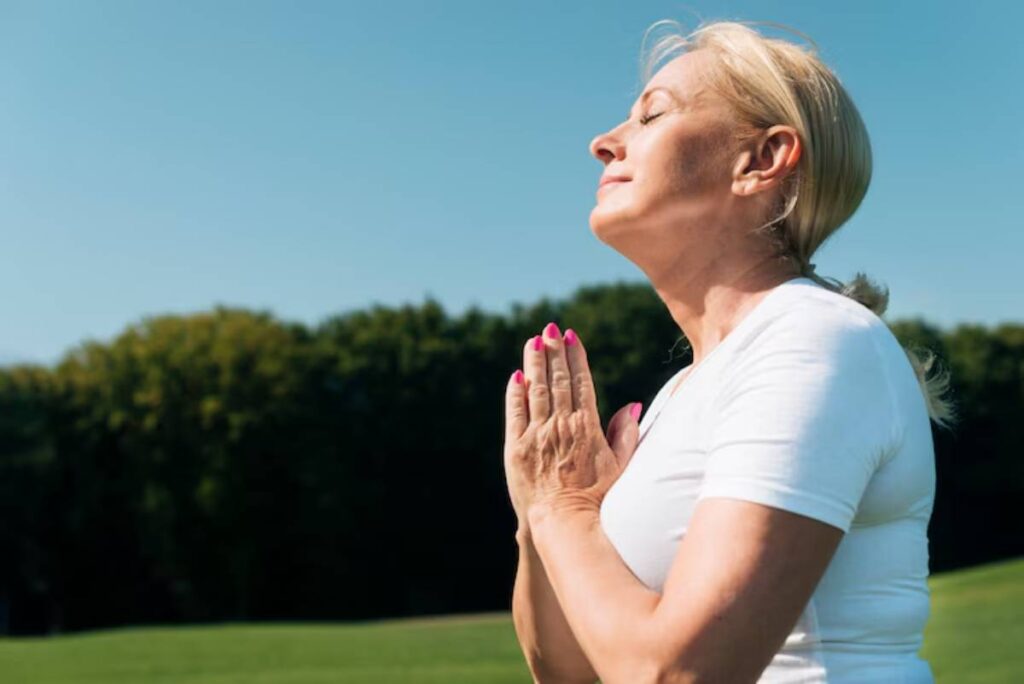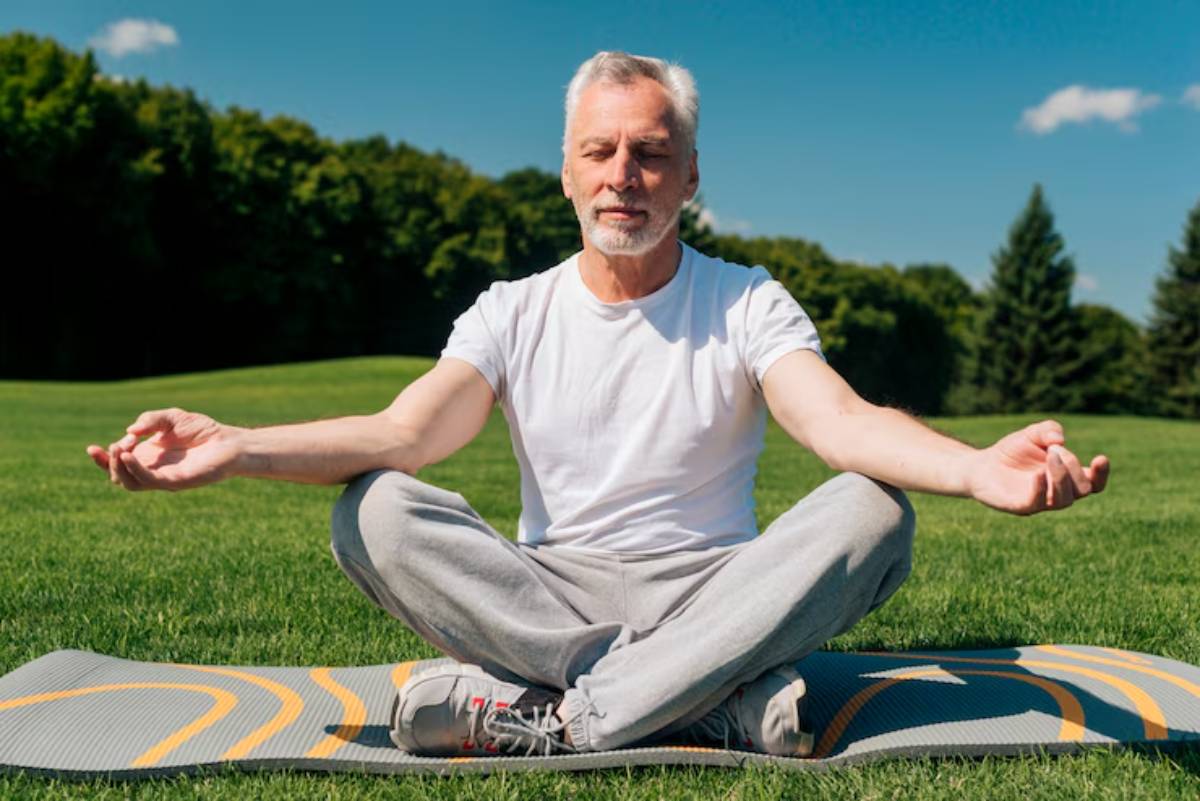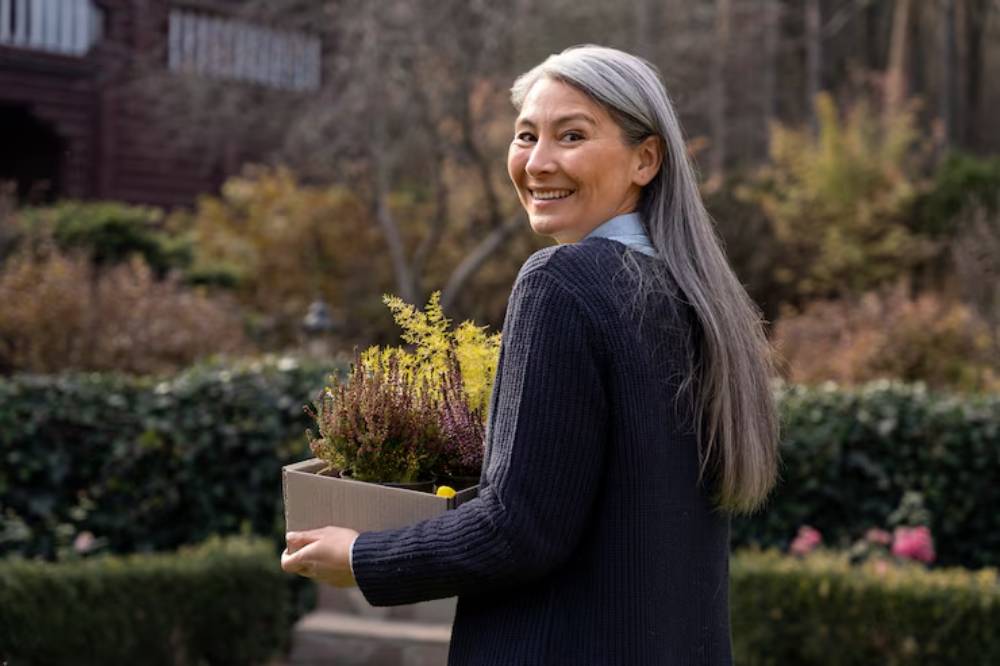The Health & Wellness Blog

Embracing Ageing with Mindfulness and Grace
Ageing is a natural and inevitable part of life, yet many of us try to resist it. In a world that often celebrates youth and physical beauty, getting older can sometimes feel like a decline rather than a progression. But with a mindful approach, we can change how we think and feel about ageing.
Mindful ageing encourages us to accept changes with grace, stay present, and find joy in each stage of life. Instead of focusing on what we may lose with age, it invites us to appreciate what we gain—wisdom, resilience, and deeper self-awareness.
In this blog, we’ll look at mindful aging. We’ll discuss why it’s important and share easy steps to help you find calm, clarity, and contentment in your later years.
The Importance of Mindful Ageing
Mindful ageing means being present now. It also involves accepting and embracing the physical, emotional, and social changes that come with getting older. It’s not about pretending that ageing is always easy. Rather, it’s about meeting challenges with a compassionate and realistic mindset.
One of the most powerful parts of mindful ageing is the shift in perspective it brings. We shouldn’t just view ageing as a loss. Instead, we can see the richness of experience, the depth of relationships, and the wisdom gained from life’s ups and downs.
Many older adults say life feels more meaningful when they focus on the present. They find it helpful to let go of past regrets and future worries. Mindful ageing supports mental well-being, helps manage stress, and can even lead to better physical health.
Staying mindful can lower anxiety and depression. Many people face these issues later in life because of isolation, illness, or the loss of loved ones. It can also support better decision-making around health and lifestyle choices.
Key Benefits of Ageing Gracefully
1. Improved Mental Health
Practising mindfulness can lead to a calmer, more peaceful mind. Meditation, mindful breathing, and gratitude exercises are great tools. They help reduce anxiety and improve your mood. When we pay attention to our thoughts and feelings without judgment, we can respond more calmly to life’s challenges.
This is especially helpful for age-related changes. These can include retirement, physical limits, or losing independence. Mindfulness allows us to face these shifts with greater acceptance and patience.
2. Physical Wellness and Active Living
As we age, staying physically active becomes more important than ever. Gentle forms of exercise—such as walking, swimming, yoga, or tai chi—support flexibility, balance, and strength. These activities also promote mindfulness. They require you to focus on your movement and breathing.
Staying active lowers the risk of chronic diseases such as heart issues, diabetes, and arthritis. It also helps you sleep better and gives you more energy.
3. Stronger Social Connections
Humans are social by nature, and meaningful relationships play a big role in ageing well. Spending time with loved ones, joining community groups, or volunteering can bring joy and purpose.
Mindfulness helps us become better listeners and more present with others. This deepens our connections and reduces feelings of loneliness, which can be common in later years.
4. Purpose and Fulfilment
A graceful ageing process includes continuing to grow and learn. Many older adults find new hobbies, take classes, write memoirs, or explore spirituality. These activities can provide a sense of purpose, and mindfulness helps us fully engage in them.
It’s never too late to start something new. Having goals and interests makes life feel meaningful, regardless of age.
Additional Expert Tips and Common Mistakes to Avoid
While embracing ageing mindfully is powerful, there are common habits and attitudes that can get in the way. Understanding and avoiding these can make the journey smoother.
Common Mistakes
- Focusing Too Much on Appearance: Trying to cling to a youthful image can lead to frustration. While it’s normal to care about how we look, it’s more important to focus on health, comfort, and confidence. True beauty comes from how we carry ourselves, our kindness, and our spirit.
- Ignoring Mental Health: Mental wellness is just as vital as physical health. Feelings of sadness, anxiety, or confusion are not a normal part of ageing and should not be ignored. If you or someone you know is struggling, seeking help from a counsellor or support group can make a big difference.
- Avoiding Physical Movement: Some people slow down too much, thinking rest is better. While rest is important, too much inactivity can lead to stiffness, weakness, and even poor mental health. Even short walks or chair exercises help maintain mobility and lift the mood.
Expert Tips

- Create a Daily Routine: Having structure in your day supports both mental and physical health. Include time for movement, mindfulness, social interaction, and fun.
- Practice Mindful Breathing: Simply pausing for a few deep breaths can calm the nervous system. Try inhaling deeply through the nose, holding for a few seconds, and exhaling slowly through the mouth. This can be done anytime, anywhere.
- Keep a Gratitude Journal: Every day, write down three things you’re thankful for. This practice helps you focus more on the good and less on the bad.
- Limit Negative Self-Talk: Replace harsh inner criticism with compassion. When you catch yourself thinking, “I’m too old for this,” try reframing it as, “I have the time and wisdom to enjoy this.”
Advanced Insights and Expert Recommendations
For those who want to go further with mindful ageing, there are several deeper practices that experts recommend.
Mindful Self-Compassion
This involves treating yourself with kindness, especially when things are tough. Speak to yourself like you would to a dear friend—gently and supportively. If you’re feeling down, instead of pushing the feeling away, allow yourself to feel it and respond with warmth.
Self-compassion lowers stress and strengthens our emotions. It helps us handle life’s changes better.
Mindful Eating

Pay attention to how, when, and what you eat. Enjoy each bite, notice textures and flavours, and eat without distractions like screens or stress. Mindful eating encourages better digestion and healthier food choices, which are vital for ageing well.
Life Review
Looking back at your life and reflecting on key moments can be a rewarding experience. What have you learned? What are you proud of? What would you still like to achieve? This process helps bring meaning to your life story and gives a sense of peace and satisfaction.
You could do this through writing, speaking with a loved one, or even recording audio stories for future generations.
Conclusion: Finding Joy in Growing Older

Growing older doesn’t mean growing less—it means becoming more of who you truly are. By embracing ageing with mindfulness and grace, we open ourselves to a richer, deeper life experience.
Rather than fearing the changes that come with age, we can learn to welcome them. Being present, taking care of our minds and bodies, and being open to connection and purpose all make ageing a beautiful journey.
Remember, it’s not about pretending life is always easy. It’s about choosing to respond to life’s ups and downs with awareness, compassion, and calm. That is the true strength of mindful ageing.
So take a moment to breathe, reflect, and ask yourself: How can one live more mindfully today? Whether it’s going for a walk, writing in a journal, or simply sharing a kind word, each small act adds up to a life lived with meaning and grace.
We’d love to hear from you. How have you embraced ageing with mindfulness? What tips or insights would you share with others on this journey? Feel free to share your thoughts and stories—you never know who you might inspire.









